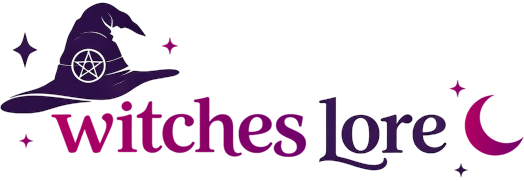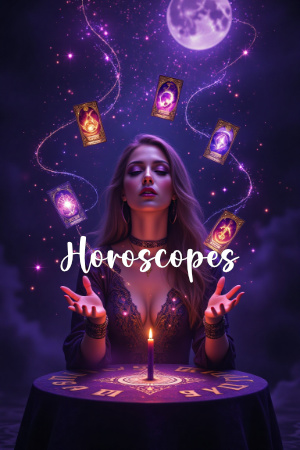
There’s something about old, forgotten languages that stirs the soul. Whether it’s hearing an ancient chant whispered in the dark or reading a crumbling spellbook written in runes no one speaks anymore, the energy feels different. It’s deeper. More primal. Like the words themselves are holding onto power that hasn’t been touched in centuries.
Witches have always been keepers of language—secret words, sacred sounds, hidden meanings. And throughout history, we’ve used language not just to communicate, but to cast, invoke, bind, and bless. But what happens when the words we speak are thousands of years old? Does the magic become stronger? Do ancient languages unlock something modern tongues just… can’t?
Many witches believe the answer is yes. Whether it’s the Egyptian chants of old temples, Sumerian incantations pulled from clay tablets, or the mysterious voices of the Druids, ancient languages seem to carry an energy all their own. Maybe it’s the vibration, maybe it’s the forgotten meaning, or maybe it’s the spirits still tied to those old sounds—but something happens when you speak them aloud.
Let’s explore the magical power behind forgotten tongues, why they might just be stronger than the words we use now, and how modern witches can tap into this ancient energy—safely and with respect.
Witchcraft and Forgotten Languages: Are Ancient Words More Powerful?
Words are one of the oldest tools in magic. Not just any words—but specific ones, said with intention, rhythm, and feeling. And it turns out, some of the oldest words we know—the ones buried in ancient scripts and nearly lost languages—may hold a special kind of magic. Many witches feel an undeniable pull toward these forgotten tongues, sensing that they carry an energy that can’t quite be replicated with modern speech.
Why? Because language is more than just communication. It’s sound. It’s vibration. It’s the shaping of breath into energy. When witches use ancient languages—whether it’s Latin, Old Norse, Sanskrit, Sumerian, or even Enochian—they’re not just saying something pretty. They’re tapping into the history of that word. The echo of every person who ever used it in a sacred way.
Ancient Words as Power Keys

Old languages feel like keys to a door that modern words can’t open. These languages weren’t created for texting or small talk—they were crafted in a world full of ritual, mystery, and reverence for the unseen. When you speak those ancient syllables, you’re not just performing a spell—you’re stepping into an ancient current.
For example, Latin is still used in many spells and rituals. It’s formal, commanding, and holds the energy of centuries of ceremonial magic. Old Norse and Icelandic are often used in rune work and galdr (magical chanting), especially by those who walk the Norse path. Sanskrit, one of the oldest written languages, is deeply tied to sacred sound, especially through mantras and spiritual chants. And then there are the real mysteries—dead languages like Sumerian or Etruscan, or magical constructed languages like Enochian, said to be received from angels.
Vibration, Sound, and Sacred Speech

In magic, the sound of the word matters just as much as its meaning. Every word has a vibration. In ancient languages, that vibration was often designed with purpose. Sanskrit mantras, for example, aren’t just spiritual poetry—they’re sonic tools meant to shift energy and awaken power.
The same goes for other magical languages. Some witches report feeling tingles, chills, or even altered states of consciousness just from repeating an old chant out loud. That’s no accident. Sound shapes reality. Our ancestors knew it, and they left us linguistic tools to work with. The beauty of forgotten languages is that they still hold the original vibrational coding—they haven’t been watered down by everyday use.
The Mystery of Enochian and Spirit Languages

Enochian is one of the most famous magical languages. It was channeled by John Dee and Edward Kelley in the 16th century, who said it came directly from angels. It’s structured, symbolic, and otherworldly. Many ceremonial magicians use it to call upon spirits, open gates, or travel between realms.
But Enochian isn’t the only mysterious language out there. Many witches speak of “spirit language” or “soul speech”—words that come out during trance, dreams, or ritual that don’t belong to any known language. These utterances may feel familiar or charged with power, even though they can’t be translated. Some believe this is the soul remembering a past life tongue. Others think it’s a form of direct energetic magic—words that matter because of how they sound and feel, not because of their definition.
The Ethics of Using Ancient Languages

Using ancient or sacred languages in magic comes with responsibility. It’s not about copying something cool from a spellbook and hoping for results—it’s about honoring the spirits, ancestors, and cultures that these words came from. If you’re using Sanskrit in a chant, take time to learn what the words mean and how to pronounce them. If you’re using Old Norse, understand the cosmology behind the sounds.
And if you’re drawn to a language from a culture that isn’t your own, approach with respect. Acknowledge that these words once held deep meaning and may still be sacred to someone. Magic isn’t just about power—it’s about relationship. Using ancient words is like knocking on a very old door. You want to knock with care.
Reawakening the Forgotten

There’s something truly magical about reviving a language that hasn’t been spoken in centuries. It feels like waking up old spirits—spirits who are happy to be remembered. Some witches even work with ancestors or deities tied to a certain language, using their words to strengthen the connection.
Language is a living thing, and in witchcraft, it doesn’t have to stay dead. Even if a language is technically extinct, speaking it again can stir its essence back to life—especially in magical spaces. Chanting ancient words in ritual, meditating with old phrases, or writing spells in forgotten scripts can reawaken a deep, almost primal energy. It’s like the magic remembers you, even if you’re just meeting for the first time.
How to Start Working With Ancient Words

You don’t need to be a linguist to start working with ancient language in your craft. Start simple. Choose a word, a phrase, or a short chant from a language you’re drawn to. Learn its pronunciation. Feel the shape of it in your mouth. Say it out loud during a candle spell or while meditating. Notice what changes.
Some witches like to keep a magical language journal—writing down favorite ancient words, their meanings, and how they feel to speak. Others build their own spells using a blend of old and new words. You can even create your own magical language if you’re called to—just remember that intention and energy matter more than grammar.
Keep in mind, you don’t have to understand every word you use perfectly. Sometimes the magic is in the mystery. But always stay grounded. Test things, feel them out. If a word feels powerful, respect it. If it feels off, don’t force it. Magic is a conversation—and ancient words can be some of the oldest voices in that chat.
10 Latin Words of Power
-
Veritas — Truth
Use this to reveal hidden knowledge, bring clarity, or invoke honesty in spellwork. -
Lux — Light
A word to call in divine light, guidance, and illumination—great for protection or healing rituals. -
Ignis — Fire
Perfect for spells involving transformation, passion, energy, or destruction of obstacles. -
Aqua — Water
Use in emotional healing, intuition, cleansing, and moon magic. -
Terra — Earth
Grounding, stability, growth, and physical manifestation—all tied to this elemental word. -
Aether — Spirit / Divine Energy
Connects you to the unseen forces, higher realms, or the spirit world. -
Vita — Life
A word of vitality, renewal, and birth—ideal for spells that bring something new into being. -
Umbra — Shadow
For working with shadow magic, hidden forces, protection, or transformation through darkness. -
Potentia — Power / Strength
Call in inner strength, magical force, or amplify the energy of your spell. -
Invoco — I Call / I Invoke
Used to summon spirits, deities, or energies—strong for invocation rituals.
Whispers of the Ancients: The Final Thought
There’s a reason old words keep coming back to us. There’s a reason we feel chills when we hear a chant in a language we don’t understand, but somehow remember. Language is magic—and forgotten language might just be some of the strongest. These words carry the weight of history, the energy of ritual, and the voices of those who came before us.
Whether you’re whispering in Latin, chanting in Old Norse, or following a trance into the strange rhythms of soul speech, know this: the ancient ones are listening. Their words still echo, waiting for someone like you to speak them again. And when you do? The magic stirs, the energy shifts, and something very old wakes up… ready to help you cast.




